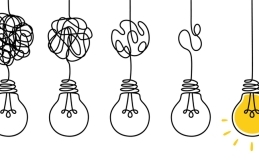
“In this world, there are only two tragedies. One is getting what one wants, and the other is not getting it.”
– Oscar Wilde
We often hear people talk about how great it will be once they accomplish, buy, get, or do something in the future. We also hear people reminisce about the good old times when they were young, unrestricted, and had it all. Think about it. When do we ever hear people talk about how good things are right now? All too often, we imagine the past or future being much better than the way things are now—but was it really better back then, and will it actually be better in the future?
When we’re in college, we can’t wait to graduate, get our dream job, get married, and/or have kids. Once we accomplish all those things, we dream about how amazing it was to be in college, free of responsibilities and spending all our time having fun with friends. Why do we do this? Is it part of the human condition? Are we wired to be dissatisfied? When I think about how dissatisfied people tend to be with the now, I often wonder, Can we actually want what we already have? What is it that has us romanticizing the past and future? How can we be content with what we have now?
After doing some research to address my questions, what I’ve found is that for most people, the past and future are not always better than the present. However, most people believe that to be the case. The belief that the future will be much better than the past and present is known as the optimism bias. A growing body of scientific evidence points to the assumption that optimism may be hardwired by evolution into the human brain. What this research shows is that our brains aren’t just imprinted by the past, they’re constantly being shaped by our positive thoughts of the future as well.
Psychologists have also recognized something called the Pollyanna principle. It means that we process, review, and recall pleasant information from the past more than we do unpleasant information. The only exception to this occurs when people feel helpless or depressed and preoccupy themselves with thoughts about past misfortunes and disappointments. For most of us, the reason the past seems so much better than the present is that we focus on the good times and often forget the daily mundane unpleasantness. Makes sense, right? We don’t sit around daydreaming about the boring days when nothing much happened; we think about the days we took photos of, the trips we took, and the exciting events we attended.
Perhaps surprisingly, our misconceptions about the past and future may actually be an adaptive part of the human spirit. The reality is, these self-deceptions may be precisely what keeps us striving and growing. If our past is awesome and our future will be even better, we can work our way through dissatisfaction and boredom in the present.
Hedonic Treadmill
Researchers who study emotions have identified something called the hedonic treadmill effect, which essentially goes like this: People work hard to reach a goal, thinking about all the happiness it will bring; but after reaching the goal and enjoying a brief love affair with happiness, they usually go back to their everyday way of being and keep running after the next thing they trust will make them feel happy forever.
I know, I know. That doesn’t sound very encouraging. It’s basically like being on a hamster wheel, getting thrown a treat every now and again. However, from an evolutionary perspective, this is how it should be. Dissatisfaction with the present and anticipation of a brighter future keep us motivated, while fond memories of the past encourage us that the feelings we seek can be enjoyed once more. In fact, everlasting ecstasy would weaken our will to achieve anything, likely keeping us uninspired and unmotivated to educate or advance ourselves.
Recognizing that happiness is a lovely guest that never stays forever might allow you to appreciate those moments when it comes to visit. Maybe that’s the trick to finding contentment: facing reality, knowing that we’re dreamers, and understanding that maybe our current reality isn’t so bad compared to the past and future. Instead of only thinking about the past or future, you can use your imagination to think about a time in the past when you wanted what you have now. You can utilize your optimistic bias to help you see that you’re living a life you once dreamt about having, and your past’s future is currently here. Appreciate what you have, and recall the work it took for you to get it. Think about how it made you feel when you first got that raise, ring, diploma, child in your arms, etc. While you work toward accomplishing the next task in your life, allow yourself to be content with all the wonderful things surrounding you here and now.
It’s impossible to be happy with all aspects of life all the time; but maybe acknowledging this reality can allow you to enjoy the happiness you have been able to experience in your life. It’s helpful to recognize that even though you have future goals and dreams in mind, you can be satisfied—content even—with what you have now. As motivational speaker Tony Gaskins said, “To be content doesn’t mean you don’t desire more, it means you’re thankful for what you have and patient for what’s to come.”
Did you enjoy reading this article?
Once a week I send out a newsletter with new articles and unique content for readers. It is my way of staying in touch with you and giving you free advice based on some important topics.
Click here to sign up for my newsletter
Talk soon,
Dr. Ilene
Article edited by Dr. Denise Fournier





